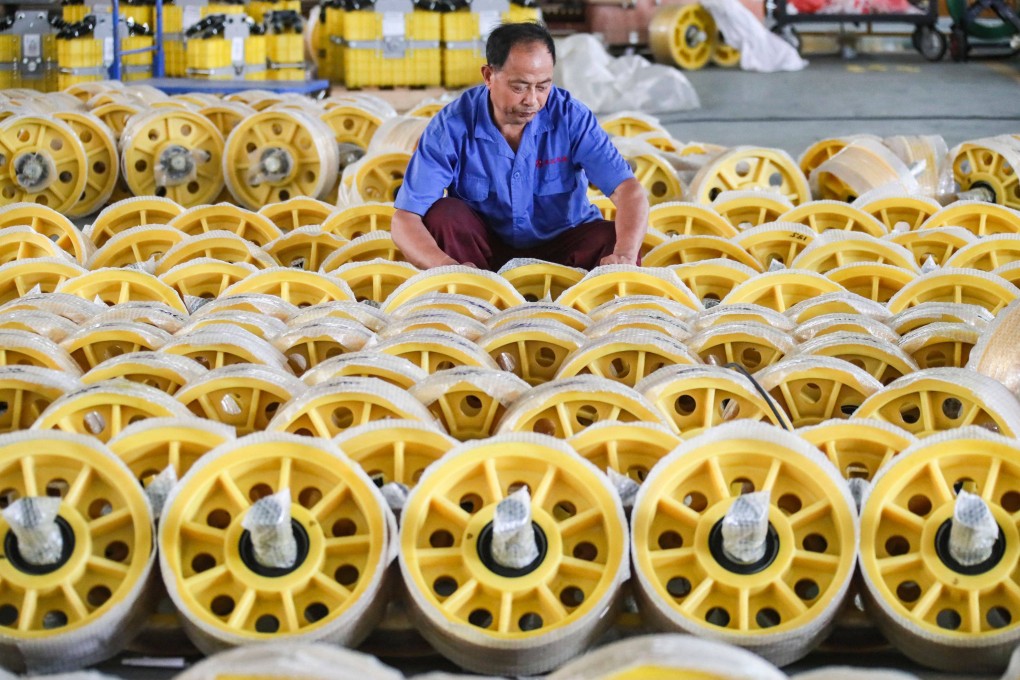China jobs: facing lean times, small businesses dial back summer hiring
- Small- and medium-sized enterprises in China, the backbone of the labour market, are imposing hiring freezes and slashing wages
- For years, Chinese manufacturers worried about labour shortages over summer, but it is a different story in 2022, industry insiders say

A video of a factory owner in Guangdong province shouting at dozens of vocational school students that summer job wages could be as low as 9 yuan (US$1.30) per hour has gone viral in China, while highlighting the precarious economic climate faced by small- and medium-sized businesses.
In the 20-second clip posted to social media, the man can be heard saying, “I reiterate, 9 yuan an hour, if you can’t accept it, carry your own luggage and leave.”
The manager of the electronics factory then tells students who are willing to accept the offer to fill in a form.
For so many years, Chinese manufacturers worried about labour shortages, but this is no longer the case
Hua Laoshi, who runs a labour agency in Shaoguan in Guangdong, said many in the manufacturing industry thought the offer was measly, but they admit the sector is facing its toughest year since 2008.